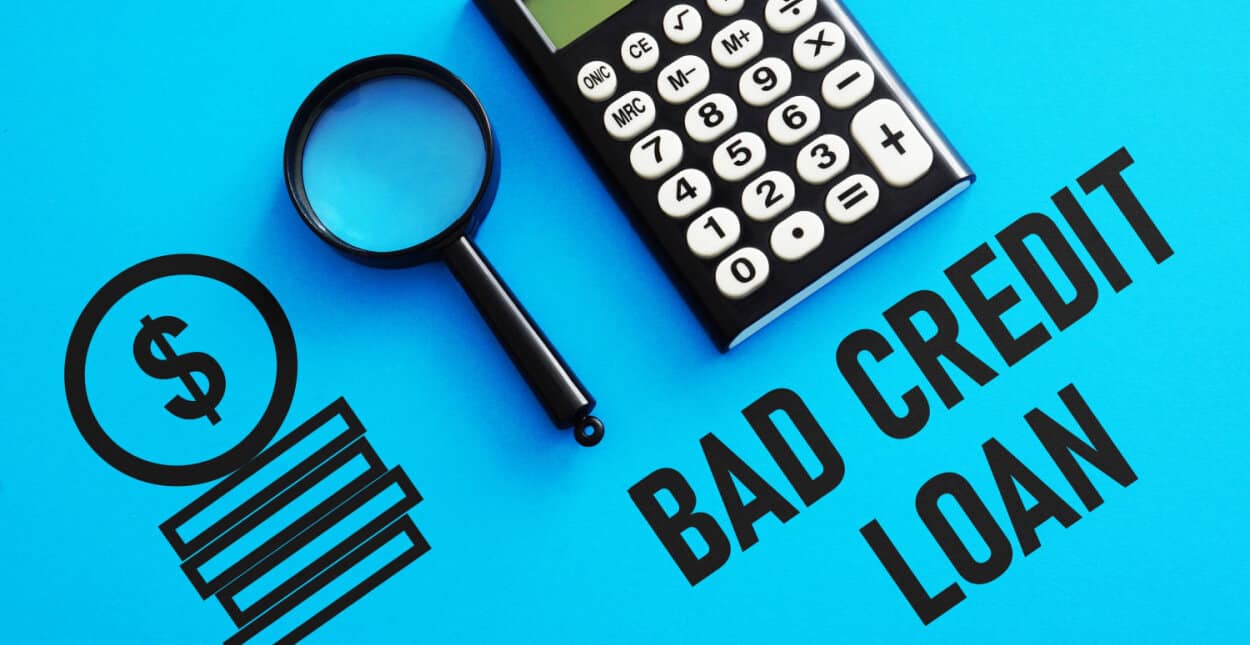Holiday Loans For Bad Credit Guaranteed Approval

The scent of pine needles hangs in the air, carols hum softly from the radio, and the glow of twinkling lights dances on the snow-dusted windowpanes. But beneath the surface of this idyllic holiday scene, a silent worry gnaws at the edges of many families: how to afford it all? The gifts, the feasts, the travel – the holidays, for all their joy, can place a significant strain on even the most carefully managed budgets. For those with less-than-perfect credit, the pressure can feel especially acute.
This article explores the landscape of holiday loans for bad credit, separating fact from fiction and providing a realistic perspective on what options are genuinely available. We'll delve into the realities of guaranteed approval, the types of loans to consider (and those to avoid), and the importance of responsible borrowing to ensure a happy holiday season doesn't lead to a financially stressful new year.
The Allure and the Reality of "Guaranteed Approval"
The phrase "guaranteed approval" is a powerful magnet, especially when financial pressures are high. It paints a picture of effortless access to funds, a safety net regardless of past credit missteps. However, it's crucial to approach such claims with a healthy dose of skepticism.
In the lending world, genuine guaranteed approval is rare, especially for individuals with bad credit. Responsible lenders are legally obligated to assess a borrower's ability to repay a loan, and this assessment invariably involves a credit check.
What's often marketed as "guaranteed approval" may be a loan with less stringent requirements, but it's almost certainly accompanied by higher interest rates and fees. These loans are designed to offset the increased risk the lender assumes by lending to individuals with poor credit histories.
Understanding Loan Options for Bad Credit
Despite the caution surrounding "guaranteed approval," options do exist for individuals seeking holiday loans with less-than-perfect credit. Understanding the different types of loans is key to making an informed decision.
Payday Loans: A Risky Proposition
Payday loans are short-term, high-interest loans designed to be repaid on the borrower's next payday. While they offer quick access to funds, their extremely high interest rates (often expressed as an annual percentage rate, or APR, in the triple digits) make them a dangerous choice.
Borrowing a small amount for holiday expenses can quickly spiral into a cycle of debt if you're unable to repay the loan on time. According to the Consumer Financial Protection Bureau (CFPB), many borrowers end up rolling over or re-borrowing payday loans, incurring additional fees and interest.
Installment Loans: A More Manageable Approach
Installment loans, on the other hand, offer a more structured repayment schedule with fixed monthly payments. These loans typically have lower interest rates than payday loans and are repaid over a longer period.
While still more expensive than loans offered to borrowers with good credit, installment loans can be a more manageable way to finance holiday expenses. They allow you to spread out the cost over several months, making it easier to budget and avoid falling into a debt trap.
Pawn Shop Loans: A Secured Option
Pawn shop loans involve borrowing money against a valuable item, such as jewelry or electronics. The pawnbroker holds the item as collateral and if you repay the loan within the agreed-upon timeframe, you get your item back.
If you fail to repay the loan, the pawnbroker keeps the item. While pawn shop loans don't require a credit check, they can be expensive, and you risk losing your valuable item if you can't repay the loan.
Personal Loans: Exploring All Avenues
Even with bad credit, exploring personal loans from online lenders, credit unions, or community banks is worth considering. Some lenders specialize in working with borrowers with less-than-perfect credit.
Comparing offers from multiple lenders is crucial to find the best interest rate and terms. Be prepared to provide documentation of your income and employment to demonstrate your ability to repay the loan.
The Importance of Responsible Borrowing
Regardless of the type of loan you choose, responsible borrowing is paramount. Before taking out a holiday loan, carefully assess your budget and determine how much you can realistically afford to repay each month.
Consider alternatives, such as cutting back on holiday spending, earning extra income through a side hustle, or using credit cards responsibly. The National Foundation for Credit Counseling (NFCC) offers resources and guidance for managing debt and creating a budget.
Avoid borrowing more than you need and be wary of lenders who pressure you to take out a larger loan than you're comfortable with. Read the loan agreement carefully, paying close attention to the interest rate, fees, and repayment terms.
Red Flags to Watch Out For
The online lending landscape can be fraught with scams and predatory lenders. Be cautious of lenders who:
- Guarantee approval without a credit check.
- Charge excessively high fees or interest rates.
- Demand upfront fees before disbursing the loan.
- Use aggressive or high-pressure sales tactics.
- Are not licensed to operate in your state.
Always verify the lender's legitimacy with your state's attorney general's office or consumer protection agency before applying for a loan.
A Final Note: Prioritizing Financial Well-being
The holidays are a time for joy and celebration, but they shouldn't come at the expense of your financial well-being. If you're struggling to afford holiday expenses, consider focusing on experiences rather than material gifts.
Simple gestures of kindness and spending quality time with loved ones can create lasting memories without breaking the bank. Remember, the true spirit of the holidays lies not in the size of the gifts, but in the warmth of human connection.
Ultimately, the best way to ensure a happy holiday season is to prioritize your financial health. By making informed borrowing decisions and practicing responsible spending habits, you can enjoy the holidays without accumulating unnecessary debt and set yourself up for a brighter financial future.


















